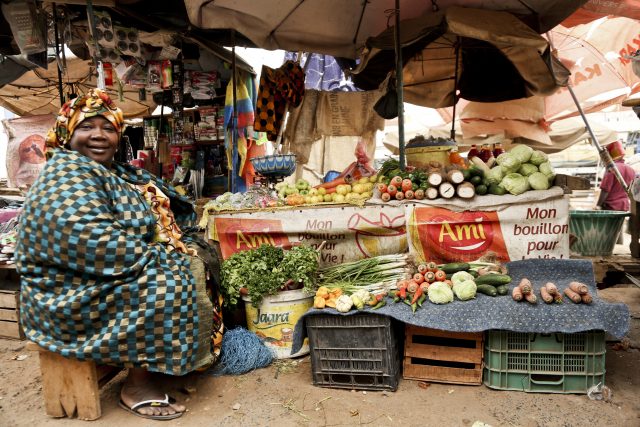Introduction
Trade and gender constitute a two-way relationship. The degree and form of gender inequalities caused by trade demands a response, and gender inequalities negatively affect trade strategies, policies, and outcomes. Gender mainstreaming refers to an approach to governance that integrates gender considerations across policies and projects. Effective implementation of gender mainstreaming within trade policy and agreements requires building consensus on priorities, as well as developing good indicators to ensure a continued commitment from both the private sector and government stakeholders. Mainstreaming gender considerations within trade should also be informed by a nuanced understanding of each region’s distinctive social, economic, and political environment.

Trade and Trade Policy in Africa
Women make a major contribution to trade in most African countries through their involvement in the production of tradable goods, working both as cross-border traders and as managers and owners of firms involved in trade. According to a report by UNCTAD women make up the largest share of informal traders, representing nearly 80% in some countries.
Currently, some trade agreements that are being implemented by countries in Africa include gender considerations styled as general objectives and principles, signaling a growing recognition of the importance of addressing gender disparities and promoting women’s economic empowerment within the context of international trade. One historic and relatively new trade agreement, the African Continental Free Trade Area (AfCFTA), includes text on gender equality and trade in its preamble and its general objectives.
In Africa, some regional economic communities like the Common Market for Eastern and Southern Africa, the East African Community, the Economic Community of Central African States, the Economic Community of West African States, and the Southern African Development Community – include about 20 different gender-related provisions directly in their treaties. Three African countries – Kenya, Rwanda and Uganda – have taken important steps to advance gender responsiveness, according to the International Trade Center.
Despite these developments, women traders in Africa still often confront substantial obstacles. These challenges are deeply rooted in the region’s socio-economic fabric and underscore the need for more gender-sensitive trade policies. According to a report by UN Women, ‘Empowering women in trade,’ some of the constraints that continue to limit women in intra- African and regional trade include; limited access to financing; sexual harassment and gender-based violence in the workplace and marketplace; disproportionate share of domestic responsibilities; and discriminatory norms that hinder participation within formal trade sectors.
The Role of the Private Sector
The heterogeneity of women’s positions, interests, and needs necessitates that policy makers conduct inclusive consultations with these various stakeholders and pay close attention to the views of marginalized groups in trade. In this way, gender mainstreaming as a component of any implementation framework must deliver an enabling environment for women-owned micro-, small-, and medium-sized enterprises.
This environment should include access to business development services, finance, technology, innovation, research and development, entrepreneurship development, and skills development. The private sector can also play a role in sensitizing trade officials to the gender implications of trade, through trainings, promoting gender data collection, conducting gender impact assessments, and fostering collaboration with women’s organizations to ensure trade policies consider and address gender disparities. This will allow trade policies and agreements to transition towards gender-aware and gender-responsive approaches over time.
Across the board, women must also be more involved in the negotiation, design, and implementation of trade agreements, including as trade negotiators and within international organizations such as the World Trade Organization. Additionally, they should also be involved in the process of providing external feedback to those officials through public consultations and civil-society organizations.
Creating more awareness about — and advocating to change — the gender inequalities present in the trade landscape directly contributes to the development of gender-aware affirmations and commitments. Empowering women economically and addressing disparities within trade activities fosters a more inclusive and equitable trade environment in Africa.
Published Date: October 19, 2023
